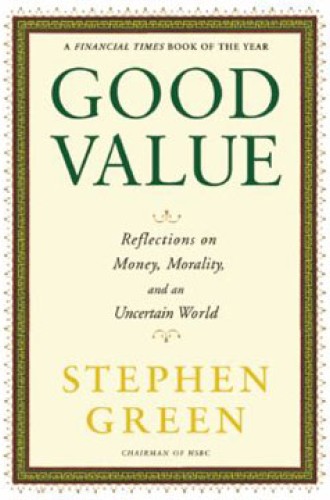A review of Good Value
Stephen Green would be the first to tell you that he has led a
privileged life. Indeed, he acknowledges his privilege throughout his
book. As chair of HSBC, the global banking powerhouse, he has traveled
the world and has engaged deeply in the global economy. He has sipped
champagne and exchanged ideas at retreats with the world's most powerful
people.
Most readers and potential readers of Good Value are also
privileged. First off, nearly anyone who would pick up Green's book—or
read this magazine—is economically advantaged, at least from a global
perspective. Second, we are privileged to read a book in which an author
ably weaves self-reflection into his analysis of the global market
without making it a treatise on himself. Seen in its best light, Good
Value is about the opportunities and the responsibilities that readers
have to shape a more humane economy and, in so doing, to live better
lives.
Green curiously states that his book is not about economics or
policy, but about the larger questions people ask about meaning and
well-being. In reality, Good Value is about all of these things. It is
an inviting though sometimes meandering narrative of current realities
and great ideas from past and present. Green offers his own account of
the history of markets and—even more sweepingly—of international
relations. He seeks to relativize the current economic crisis by placing
it within a history that ebbs and flows. Prosperity and power alike
are temporary realities, and they do not deliver the well-being that
they promise. Both nations and individuals, Green says, would do well to
remember how fleeting success is. He expresses appreciation for the
wisdom of Ecclesiastes: all is vanity, and toil and the pursuit of
earthly gain seldom bear the fruit that the pursuer had expected.






